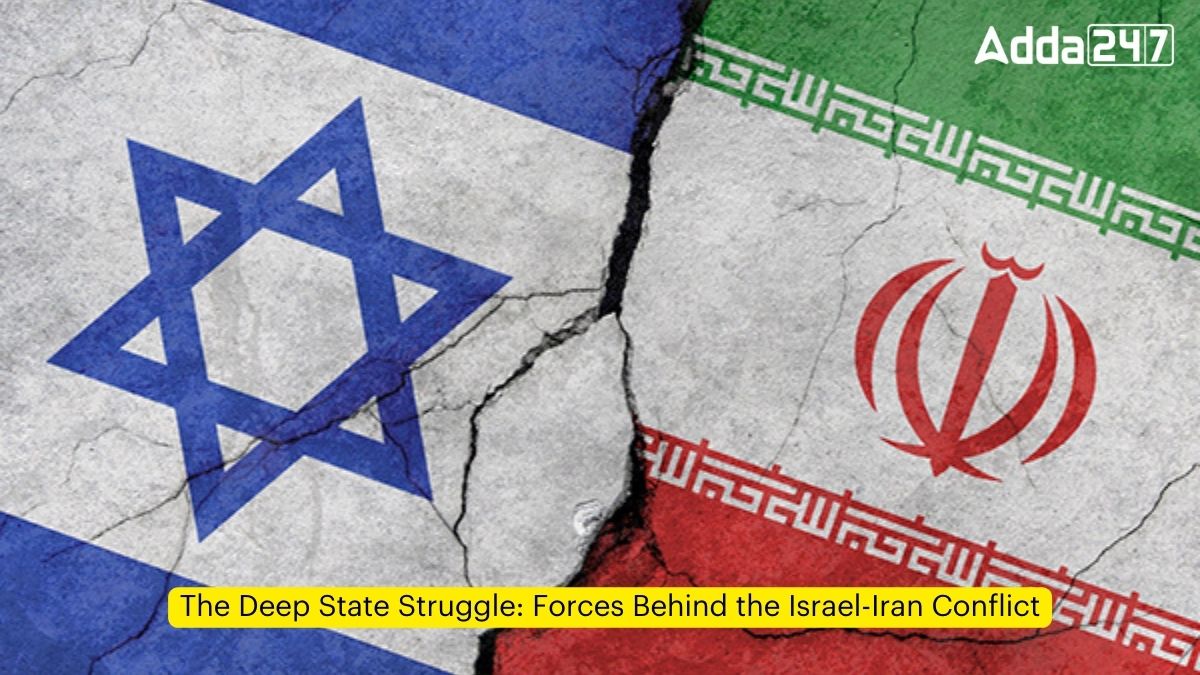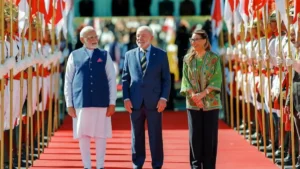Introduction
The current war between Israel and Iran is not merely a conflict between two nation-states, but rather a complex interplay of power dynamics and ideological differences that stem from a deeper, more intricate struggle, the clash between the “Deep State” and the Islamist forces in the Middle East. This conflict, which has its roots in the early 20th century, has been shaped by a series of pivotal events, power dynamics, and ideological differences that have profoundly impacted the course of history in the Middle East.
The Discovery of Oil and the Rise of the Deep State
The roots of the Israel-Iran conflict can be traced back to the early 20th century, when the Anglo-Persian Oil Company, a subsidiary of Burmah Oil (later known as British Petroleum), discovered oil in Iran in 1909. This discovery would prove to be a pivotal moment, shaping the future of the region and the global power dynamics.
In 1923, Burmah Oil employed Winston Churchill, a prominent figure in the “Deep State,” as a paid consultant to lobby the British government to grant APOC exclusive rights to Persian oil resources. This request was subsequently granted, solidifying the Deep State’s grip on Iran’s valuable natural resources.
The Pahlavi Dynasty and the Deep State’s Control
After World War I, Britain captured Iran from the Ottoman Empire and appointed Reza Shah as the monarch. In 1941, as the threat of German influence in the region grew, Britain attacked Iran and replaced Reza Shah with his son, Mohammad Reza Pahlavi, to ensure the protection of Iran’s oil fields from German control.
During the Pahlavi dynasty, Iran’s relationship with the Deep State was one of a “colony,” as the oil companies and their Western allies enjoyed unfettered access to Iran’s oil resources. This period was marked by a close alliance between Iran and Israel, both of which were seen as allies of the Deep State in the region.
The Nationalization of Oil and the Mossadegh Regime
The status quo in Iran was disrupted in 1951 when a nationalist, Mohammad Mosaddegh, became the Prime Minister. Mosaddegh, driven by a desire to assert Iran’s sovereignty, nationalized the country’s oil industry, effectively kicking out the Deep State oil mafia.
This move was seen as a direct threat to the Deep State’s interests in the region. In response, the Deep State’s two arms – the CIA and MI6 – orchestrated a regime change operation known as “Operation Ajax” in 1953, which overthrew Mosaddegh’s government and reinstated Mohammad Reza Pahlavi as the monarch of Iran.
The Islamic Revolution and the Islamist Takeover
The Deep State’s control over Iran was shaken once again in 1979, when the Islamic Revolution led by Ruhollah Khomeini swept through the country. Khomeini declared himself the monarch of Iran and, like Mosaddegh, immediately expelled the Deep State oil companies from the country, taking control of Iran’s oil fields.
This event marked a significant shift in the regional power dynamics, as Iran became a Shia Islamic country, directly challenging the interests of the Deep State and its Sunni-dominated allies in the region, such as Saudi Arabia and Pakistan.
The Iran-Iraq War and the Rise of Iran as a Regional Power
In the 1980s, the Deep State’s next move was to incite a conflict between Iran and Iraq. Saddam Hussein, who was once a darling of the Deep State, launched a war against Iran in 1980, which lasted for seven years. During this time, the Deep State, including the United States and Israel, supported Iraq, but Iran emerged victorious, solidifying its position as a regional power.
The Iran-Iraq War further strengthened Iran’s resolve to project itself as the true leader of the Muslim world, in direct opposition to the Deep State’s Sunni-dominated proxies in the region.
The Nuclear Threat and the Intensification of the Conflict
The next turning point in the Israel-Iran conflict came in 2002, when news emerged that Iran was pursuing the development of a nuclear weapon. This development was seen as a direct threat to Israel’s security, as it would empower a pro-Palestinian country in the region, potentially undermining Israel’s strategic dominance.
From 2002 to 2012, Mossad, Israel’s intelligence agency, launched a secret assassination mission, targeting Iran’s nuclear scientists in an effort to disrupt the country’s nuclear program. This period also saw a clash within the Deep State, as the Zionist section (Neocons) pushed for immediate military action against Iran, while the Globalist section (led by figures like Obama and Brzezinski) advocated for a more cautious approach, fearing that an attack on Iran would unite China, Russia, and Iran against the West.
The Ongoing Proxy War and the Current Conflict
The struggle between the Deep State and the Islamist forces in the region has continued to play out through a series of proxy wars and covert operations. From 2012 to 2022, Israel and Iran engaged in a “pseudo-war,” with Mossad carrying out attacks while Iran-backed groups like Hamas, Hezbollah, and the Houthis responded with their own offensives.
The current conflict between Israel and Iran can be seen as the latest chapter in this long-standing struggle. The Iranian attack on Israel, which occurred in response to a suspected Israeli strike on an Iranian consulate in Damascus, is a manifestation of the deeper tensions and power dynamics at play.
Implications and the Future
The outcome of the current conflict between Israel and Iran will have far-reaching implications for the region and the global balance of power. The Deep State, represented by Israel and its Western allies, is determined to maintain its dominance in the region and prevent the rise of a strong, independent Iran. On the other hand, Iran, under the leadership of the Islamist regime, is equally resolute in asserting its sovereignty and challenging the Deep State’s influence.
The decisions made by Israel’s War Cabinet in the coming days and weeks will be crucial in determining the trajectory of the conflict. The delicate balance between de-escalation and retaliation will have significant consequences, not only for the immediate parties involved but also for the broader geopolitical landscape of the Middle East.




 Geneva to Host AI Summit 2027 & UAE ...
Geneva to Host AI Summit 2027 & UAE ...
 India-Brazil Seal 10 Big Deals: A New Po...
India-Brazil Seal 10 Big Deals: A New Po...
 AI Impact Summit 2026 Concluded As 89 Na...
AI Impact Summit 2026 Concluded As 89 Na...








